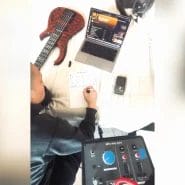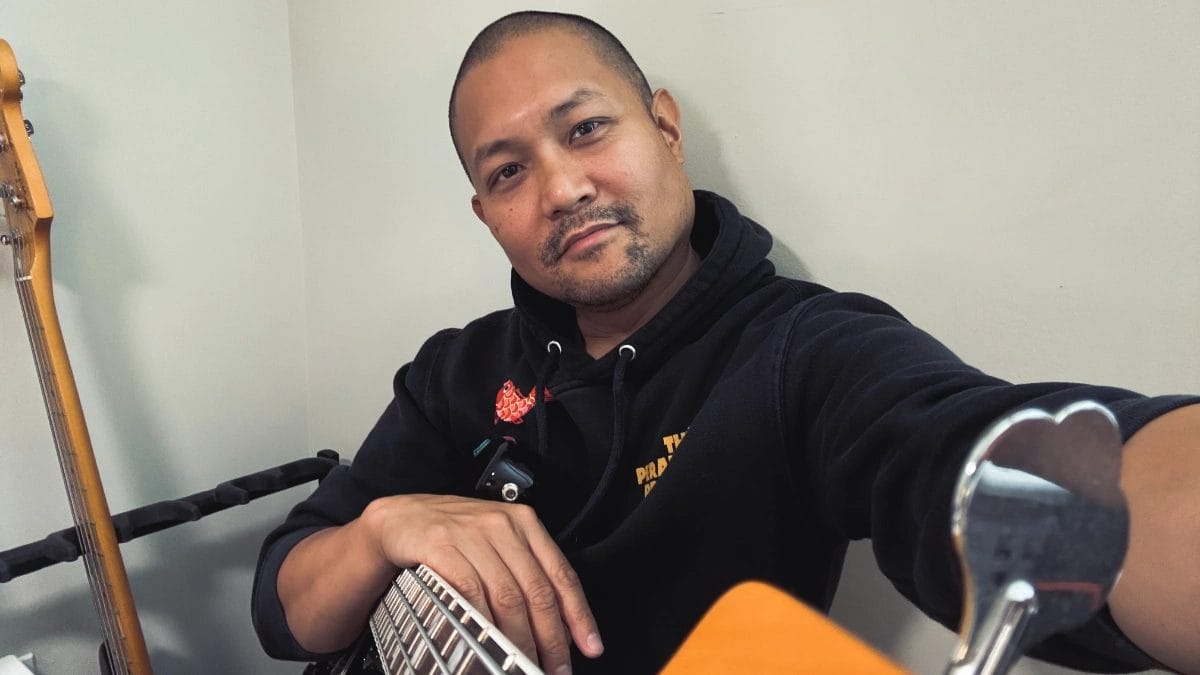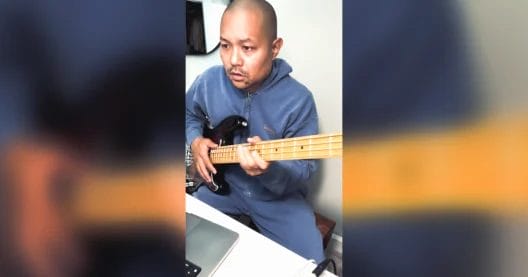My kid has this habit. She’ll hear a song she likes, and that’s it — that song becomes her entire world. She’ll play it on repeat until she can sing every lyric, beatbox every rhythm, and even clap out the drum parts.
I didn’t teach her this approach. I didn’t encourage it. It’s something she naturally graduated to on her own.
And it stopped me in my tracks.
Because what I saw in her was exactly what practice should feel like.
The Hidden Power of Obsession
When I think back to when I first picked up the bass guitar, I remember that same kind of obsession. I didn’t care about “studying.” I wasn’t sitting around memorizing licks from a checklist or drilling grooves because someone told me they were essential.
I just wanted to play.
I wanted to jam with friends for an hour straight until my fingers bled. Then, when they healed, I wanted to do it all over again. I wanted to absorb every nook and cranny of the songs that caught my attention.
Somewhere along the way, though, that changed.
As I got more involved in music professionally, my focus shifted. I practiced what I needed to survive — to nail the gig, to meet the expectation, to keep the job. That focus was necessary, but it wasn’t necessarily my excitement.
And when you lose the play in playing music, your ability to absorb material diminishes.
Returning to Curiosity
Watching my kid reminded me of something I’d forgotten: obsession is one of the most powerful mechanisms for absorbing material.
These days, my approach to practice looks different. When I sit with scales, solos, or chords, I don’t care as much about what’s “theoretically correct.” I care about the sound in my head. I play until I get closer to that sound.
It feels slower. Less structured. But just like my kid with her song on repeat, things start to click in their own time.
And when they do, they click deeper.
Frustration, Transformed
For years, I couldn’t articulate why practice sometimes felt frustrating. Now I get it: my learning only expands at an exponential rate when I enjoy what I’m doing.
So I stopped forcing myself through lists like “10 Bass Grooves You Must Know.”
The only “must-know” is whatever you’re actually excited about. That’s the thing you’ll stick with long enough for it to become second nature. That’s the thing that rewires your ear, your hands, and your musical intuition.
Beyond the Bass
This lesson isn’t limited to music.
I’ve seen it in chess, where obsessing over a single position teaches me more than speed-running puzzles. I’ve seen it in writing, where following a single idea across drafts feels richer than hammering out words for the sake of output.
I’ve even seen it in building Ayumio, where chasing my curiosity about AI prompts created more momentum than grinding through features I wasn’t excited about.
In every creative pursuit, friction shows up when you’re doing something you don’t actually care about. Flow happens when you give yourself permission to follow what excites you.
Advice for Parent-Musicians
If you’re a parent-musician struggling with patience, let me pass on the lesson I got from my kid:
- Focus on what catches your ear.
- Obsess over that.
- Let joy set the curriculum.
Patience won’t feel like something you have to force. It’ll feel like something that grows naturally, the same way a kid sings a song on repeat until it becomes part of them.
Final Thought
The biggest gift my kid gave me wasn’t just a reminder to slow down — it was permission to rediscover the play in playing music.
Because at the end of the day, patience in practice isn’t about grinding through what you think you should learn. It’s about returning to what you can’t stop thinking about, the thing you’d gladly play on repeat until it becomes part of who you are.
Want more mindsets that make your playing feel lighter and more intentional? Explore the Creative Life & Tools hub →
Frequently Asked Questions
How can I stay patient when practicing music?
Focus on what excites you. When you practice the ideas, grooves, or songs you’re genuinely curious about, patience becomes natural instead of forced.
What should I practice as a busy parent-musician?
Pick something small you’re obsessed with—one riff, one chord shape, one groove. Short but joyful repetitions build momentum even on busy days.
How do I avoid frustration in practice?
Frustration fades when you follow your curiosity rather than rigid checklists. Practice becomes lighter when you let joy—not obligation—be your guide.









